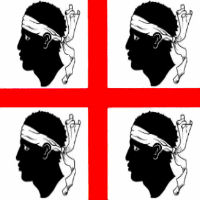0


















| Thumbs Up |
| Received: 5,396 Given: 6,059 |
















| Thumbs Up |
| Received: 5,396 Given: 6,059 |













| Thumbs Up |
| Received: 5,951 Given: 5,518 |













| Thumbs Up |
| Received: 3,808 Given: 7,516 |















| Thumbs Up |
| Received: 2,656 Given: 332 |

From what I know "thalassa" is pre-IE and probably Pelasgian. When the Achaeans (ancestors of modern Greeks) arrived in Greece from the north of the Balkans, they were people who lived inland, and knew nothing of the sea, so they acquired all sea vocabulary from the indigenous pre-IE populations.
In the famous Anabasis of Xenophon, which tells the travel of a Greek army from Mesopotamia to the coasts of the Aegean sea, through the Anatolian highlands, the author Xenophon tells that when he asked indications to the Anatolians using indigenous translators who also spoke Greek, the Anatolians in their language used the word "thalassa" pointing the finger towards the direction where the sea was.
Non Auro, Sed Ferro, Recuperanda Est Patria (Not by Gold, But by Iron, Is the Nation to be Recovered) - Marcus Furius Camillus (Roman General)
















| Thumbs Up |
| Received: 786 Given: 795 |

Actually, it's thalatta in ancient, thalassa is the modern greek version.
It is the parent word for alata, alati which means salts, salt.


















| Thumbs Up |
| Received: 6,920 Given: 7,438 |

Satem and centum are not genetic groupings (meaning these languages don't share a common satem ancestor or a common centum ancestor), but areal groupings based on only one or two shared linguistic features. Areal features are linguistic features that occur as a result of contact due to geographic proximity. So it's basically like the Balkan Sprachbund but on a much smaller scale and applicable to a much larger number of languages.
Below are the linguistic features that typically define satem and centum:
When they say words like "palatovelar", "plain velar", and "labiovelar"; they're referring to the pronunciation in Proto-Indo-European. "Plain velar" refers to sounds like "g" and "k". "Palatovelars" refers to "plain" velars that are palatized. Palatized refers to sounds when the tongue hits the roof of the mouth, sort of like a soft "j" sound when combined with a plain velar. Labiovelar refers to when you slightly round your mouth when making a plain velar sound, like a soft "w" sound combined with a plain velar.
The main difference between centum and satem is that the palatovelars became assibilated in satem languages meaning they started to be pronounced like a "s" and the labiovelars didn't get merged in centum languages.
Albanian is also apparently not a proper satem language:
If Albanian is a centum language, it just means that the ancestors of Albanians spoke a language that had contact with speakers of other satem languages (like maybe Balto-Slavic) before they migrated to Southern Europe.Some linguists claim that the Albanian[8] and Armenian[citation needed] branches are also classified as satem, but some linguists claim that they show evidence of separate treatment of all three dorsal consonant rows and so may not have merged the labiovelars with the plain velars, unlike the canonical satem branches. In Armenian, some assert that /kʷ/ is distinguishable from /k/ before front vowels,[9] while in Albanian, it has been claimed that /kʷ/ and /gʷ/ are distinguishable from /k/ and /g/ before front vowels.[10] Such "incomplete satemisation" may also be evidenced by remnants of labial elements from labiovelars in Balto-Slavic, including Lithuanian ungurys "eel" < *angʷi- and dygus "pointy" < *dʰeigʷ-. A few examples are also claimed in Indo-Iranian, such as Sanskrit guru "heavy" < *gʷer-, kulam "herd" < *kʷel-, but they may instead be secondary developments, as in the case of kuru "make" < *kʷer- in which it is clear that the ku- group arose in post-Rigvedic language. It is also asserted that in Sanskrit and Balto-Slavic, in some environments, resonant consonants (denoted by /R/) become /iR/ after plain velars but /uR/ after labiovelars.
The extinct Anatolian languages may be neither satem or centum.
Also, I should add that in regards to Illyrian, there's no proof that Illyrian is a centum language. It was only classified as centum by some people because it was thought to be related to the extinct Venetic, and Venetic is classified as centum. There's not enough text to properly classify Illyrian.
Last edited by Mingle; 03-12-2019 at 05:36 PM.
There are currently 1 users browsing this thread. (0 members and 1 guests)
 Shqipëria
Shqipëria
Bookmarks